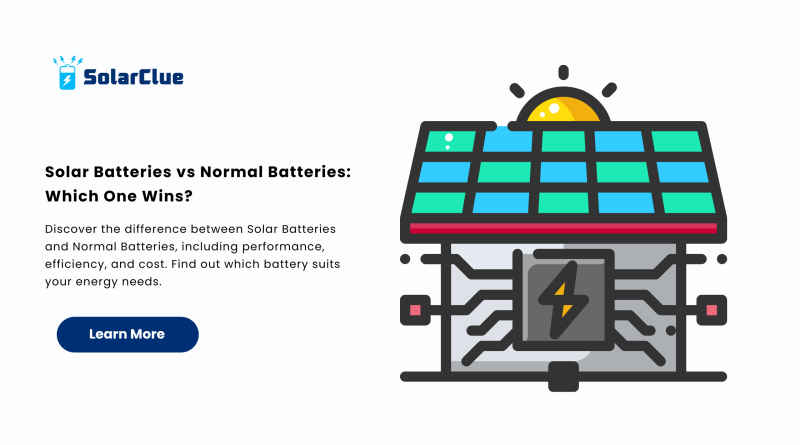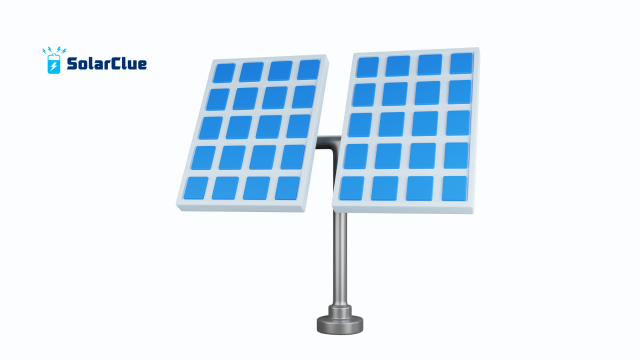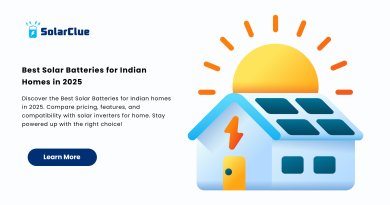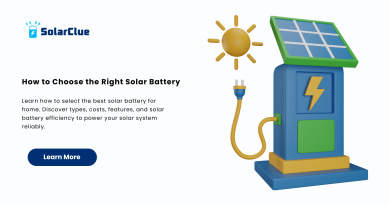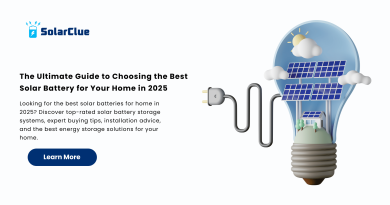Solar Batteries vs Normal Batteries: Which One Wins?
Solar Batteries vs Normal Batteries: As the world rapidly transitions to renewable energy, understanding the difference between Solar Batteries and Normal Batteries becomes crucial for anyone considering energy storage options. Whether you’re investing in solar power systems or just want to know which battery technology serves your home or business best, this guide will walk you through all you need to know. We’ll cover performance, solar battery price, longevity, use cases, and more—helping you make an informed decision.
Table of Contents
- 1 What Are Solar Batteries?
- 2 What Are Normal Batteries?
- 3 Performance Comparison
- 4 Lifespan and Durability
- 5 Cost Considerations
- 6 Environmental Impact
- 7 Use Cases: Where They Fit Best
- 8 Integration with Solar Power Systems
- 9
- 10 Maintenance Requirements
- 11 Safety Aspects
- 12 Long-Term Value
- 13 Choosing the Right Battery
- 14 Government Incentives and Subsidies
- 15 User Reviews and Market Trends
- 16 Final Thoughts
- 17 FAQs
What Are Solar Batteries?
Solar Batteries are specifically designed to store energy generated by solar power systems. These batteries store excess electricity produced during the day and release it when the solar panels aren’t generating power, such as at night or during cloudy weather.
Key Features of Solar Batteries:
- Designed for deep-cycle usage
- Integrate with solar inverters
- Optimized for energy storage
- Eco-friendly and sustainable
What Are Normal Batteries?
Normal Batteries refer to the conventional batteries we commonly use—like lead-acid or alkaline batteries. These are not tailored for solar energy systems and are typically used in cars, appliances, or small electronics.
Common Types:
- Lead-Acid
- Alkaline
- Nickel-Cadmium (NiCd)
Performance Comparison
When comparing Solar Batteries vs Normal Batteries, performance is where the most noticeable differences arise.
Efficiency:
Solar Batteries are more efficient when it comes to storing and discharging energy consistently over long cycles. Normal Batteries degrade faster under deep discharge conditions.
Depth of Discharge (DoD):
- Solar Batteries: 80–95%
- Normal Batteries: 50–60%
Lifespan and Durability
Solar Batteries:
Most modern solar batteries like Lithium-ion models last between 10 to 15 years with minimal degradation.
Normal Batteries:
They usually have a shorter lifespan of 3 to 5 years when used under the same load conditions.
Cost Considerations
Solar Battery Price:
While the initial solar battery price might be higher than normal batteries, their long-term benefits make them more cost-effective.
- Lithium-ion Solar Battery: ₹40,000 – ₹1,00,000
- Lead-Acid Solar Battery: ₹10,000 – ₹40,000
Check out real-time battery prices at SolarClue.com
Environmental Impact
Solar Batteries are more environmentally friendly. They are built with sustainable materials and reduce dependency on grid electricity, thereby lowering your carbon footprint. In contrast, normal batteries often end up in landfills, releasing harmful chemicals.
Use Cases: Where They Fit Best
Solar Batteries:
Ideal for homes and businesses with solar power systems, especially in off-grid areas or places with unreliable electricity supply.
Normal Batteries:
Suitable for short-term, small-scale applications like remote controls, toys, and cars.
Integration with Solar Power Systems
Solar Batteries integrate seamlessly with solar panels and inverters, forming a complete energy ecosystem that maximizes efficiency.
Read more on solar integration at blog.solarclue.com
Maintenance Requirements
Solar Batteries:
Minimal maintenance, especially in Lithium-ion models.
Normal Batteries:
Require regular topping up of water in lead-acid types and need more frequent replacements.
Safety Aspects
Solar Batteries come equipped with built-in Battery Management Systems (BMS) that prevent overcharging, deep discharge, and thermal runaway. Normal Batteries lack these advanced safety features.
Long-Term Value
Over time, solar batteries prove to be more valuable due to their high efficiency, longer lifespan, and lower total cost of ownership.
Choosing the Right Battery
When deciding between Solar Batteries and Normal Batteries, consider the following:
- Energy requirements
- Budget
- System compatibility
- Environmental impact
Government Incentives and Subsidies
In many regions, governments offer subsidies for installing solar power systems with solar batteries, making them even more accessible.
User Reviews and Market Trends
The rising popularity of solar batteries is evident in user reviews and sales trends. Homeowners praise their reliability, and industries value their ROI.
Final Thoughts
So, which one wins—Solar Batteries or Normal Batteries? The answer lies in your energy goals. If you’re aiming for sustainability, long-term savings, and energy independence, solar batteries are your best bet. On the other hand, if you need a temporary or small-scale power solution, normal batteries will suffice.
Ready to power up your home or business? Explore our full range of solar batteries and pricing at SolarClue.com and get expert insights on blog.solarclue.com.
FAQs
1. What is the main difference between solar batteries and normal batteries?
Solar Batteries are optimized for energy storage from solar power, while Normal Batteries are suited for short-term or low-energy applications.
2. Are solar batteries more expensive than normal batteries?
Yes, the solar battery price is generally higher, but they offer better longevity and efficiency.
3. Can I use a normal battery for my solar power system?
Technically yes, but it’s not recommended as normal batteries aren’t optimized for deep-cycle usage.
4. What are the benefits of solar batteries?
They offer longer lifespan, high DoD, low maintenance, and seamless solar integration.
5. Where can I buy quality solar batteries online?
You can purchase them at SolarClue.com and learn more from blog.solarclue.com.
Visit SolarClue.com today and light up your world with energy that lasts!

